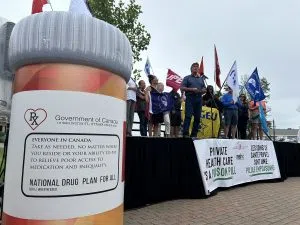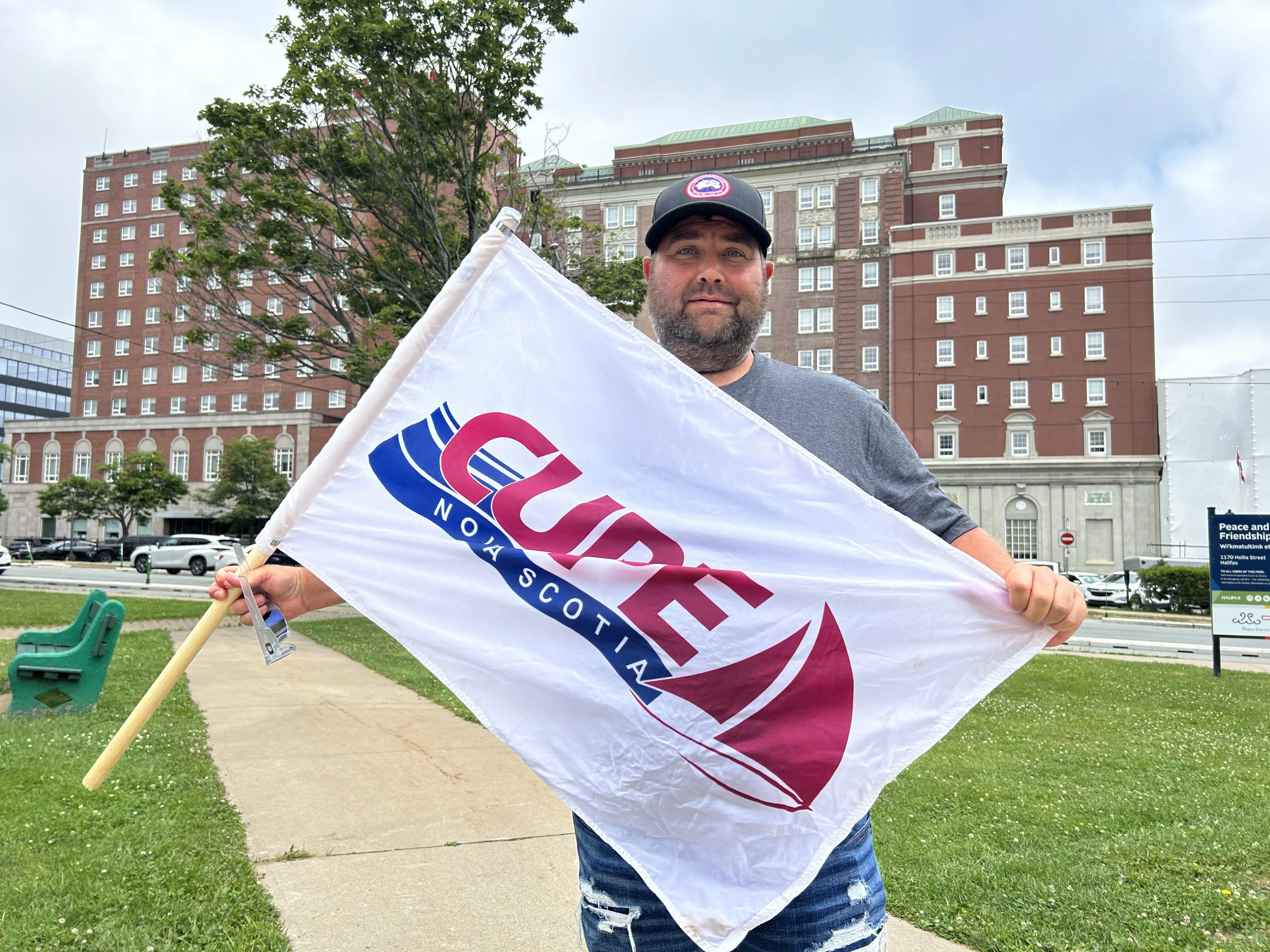More than 200 people and about 15 unions protested privatized health care in downtown Halifax.
The protests were held as Canada’s premiers are meeting in the Nova Scotia capital city.
Director of policy and advocacy with the Canadian Health Coalition, Steven Staples, says privatization will make health care worse.
“These private clinics, they drain staff work healthcare workers from hospitals, where we need them into private clinics,” Staples said.
Ontario, Alberta and B.C. are increasing the use of private clinics to perform publicly-funded surgeries and to reduce waitlists.

People speak at a rally against private health care in downtown Halifax. (Jacob Moore/Acadia Broadcasting)
According to a survey from Environics Research, an overwhelming majority of Canadians are worried about the state of the health-care system.
Staples said the survey shows people are concerned, and they want their leaders to do more, which is why he and the other organizers held the rally near the premiers’ meeting.
However, he understands “to some degree” when health-care workers leave jobs because of terrible working conditions, low pay and long work hours.
“But on the big scale, we need governments to do something about this to keep people in these jobs,” he said.
You need private insurance to pay for private health care, or you have to pay “a whack of money out of your pocket,” like when you might see a dentist or an eye doctor, he said.
Alan Linkletter, Vice President of CUPE northern Nova Scotia, works as a lab assistant at a hospital.
He said privatized health care doesn’t solve the root issues like staff retention, wages and working conditions.

More than 200 people and about 15 unions attended a rally outside the Westin Hotel, where Canadian premiers are meeting Tuesday and Wednesday in downtown Halifax. (Jacob Moore/Acadia Broadcasting)
“The whole thing with us, in our provision, is we’re getting burnt out. It’s the shifts. It’s the long durations. it’s the overtime,” said Linkletter.
“It’s like every department in health care right now.”
He added that more people are leaving his field than people join, as well.
Workers are tired of this, he said, long wait times, how difficult it is to book an appointment, and people are tired of that, too.
“We need to be funding our jobs better. We need to be opening more clinics, finding the staff,” and improving university and college programs to bring people into the field, he said.





